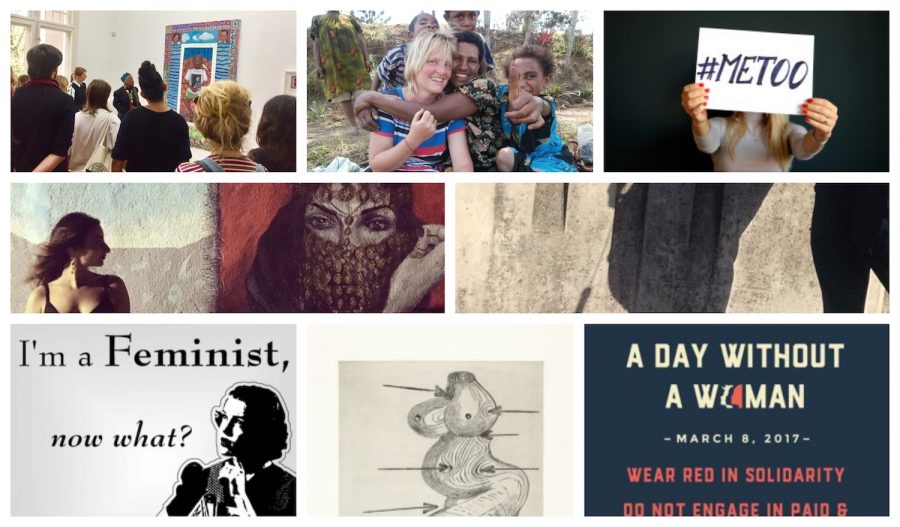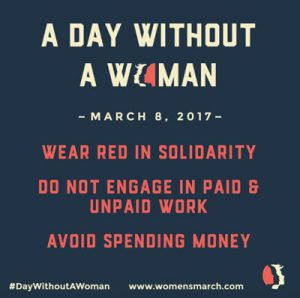The 8th March 2019 is the first year Berlin will celebrate International Women’s Day as an official public holiday. This day invites us to reflect on its historical and political implications. To mark the occasion and encourage contemplation, Die Bärliner has uncovered eight evocative pieces contributed by seven eloquent authors over the past three years that, while diverse in their content, speak to a (heterogenous) lived “female” experience. From a discussion on feminism to a reflection on #MeToo, from stories of survival to profiles of women who have distinguished themselves in their respective fields, this assemblage might be thought of as an anthology meant to inform, inspire, and provoke. We hope that you will bravely consider its content.
April 2015 Feminism: Hesitation and Refusal by Rindala Pereverzev

…To be critical is not to repeat the same assertions about the unprivileged status of women. In other words, the solution of the problem does not reside in discovering and refining the reasons for which women have been historically (and to this date) subjugated. Women have not been subjects to a world ruled by men. The politics of identity is incomprehensive by default and it is indeed radical. However, critique, in the final analysis, has no identity. When critique starts with «as a woman» or «as a feminist» it is no longer critical but is rather the embodiment of the «problem» of women. Therefore, one has the right or at least should have a space for non-partisan protest – a moment of hesitation. Am I feminist? Yes, but who cares? And so I am, but now what? …
February 2016 Bodies That Matter by Charlotte Boccone
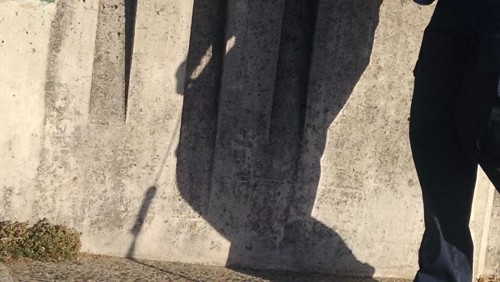
…I left the sadomasochist meeting unexpectedly disappointed. I realized I had been hoping to find some answers there – to understand the significance of willfully recreating these dialectics of dominance and submission, in a world where untold numbers of people suffer and die under systems of violence. Is it Subverting? Perpetuating? Reclaiming? Deconstructing? I wanted it to fit into one of my clean academic categories, ready for sociological analysis. Is it some kind of morality theater, fiction to reveal to us the truth? Is it fiction at all? I should have known I wouldn’t answer society’s existential questions in a dungeon-like club decorated with red and black balloons. So, what is the place where I can understand the brutality of being alive? …
December 2016 A German, a Papua New Guinean and an Anthropologist Walk Into A Bar: A Profile of Regina Knapp by Tanya Sampath Sharma
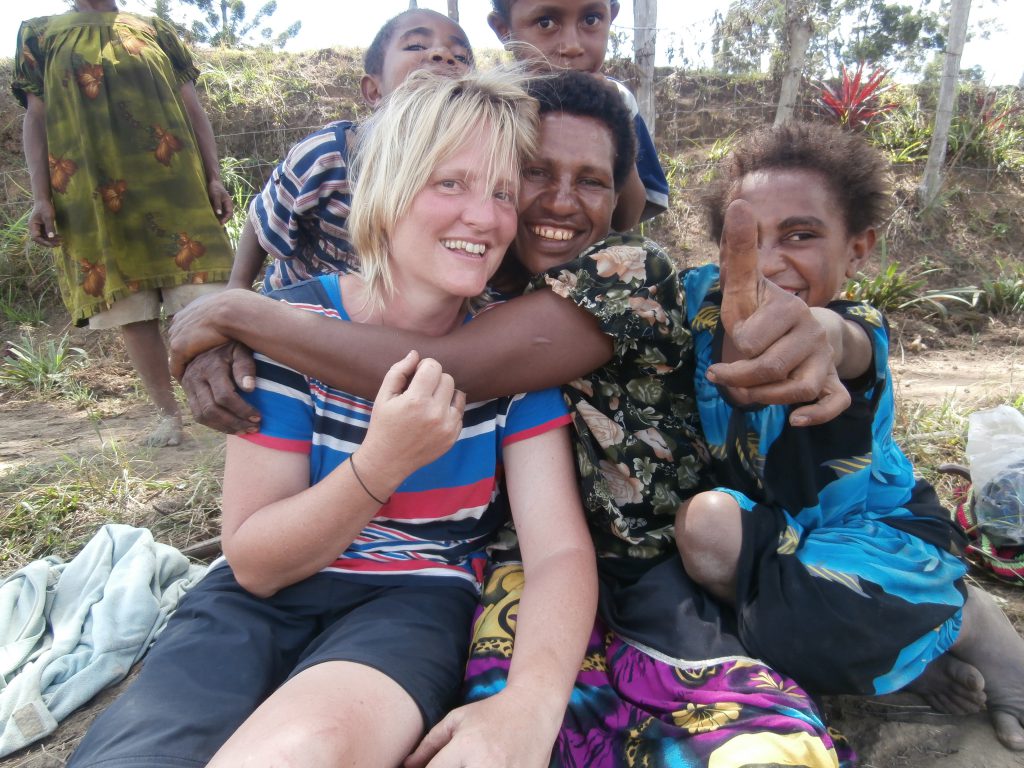
When I asked Regina if I could interview her, she seemed taken aback.
“Interview me?” she asked.
“Yes,” I affirmed, and we sat down for a quick chat. Although this was not nearly enough time to cover the expanse of her life and career, it was nonetheless enlightening. I know Regina Knapp as my Culture Change and Exchange Professor. Our class aims to understand how to write a good academic research paper. We were also able to learn about different aspects and forms of each other’s cultures as Regina encouraged us to speak of our cultures in relation to the topics we were studying. I remember initially being fascinated by her and her accent as she talked about her life in Papua New Guinea. Her accent is a product of the vast array of experiences she has had in her life: It is partly German through her upbringing and partly British, possibly from her travels to and from Papua New Guinea, with the occasional Australian slip. In class, she is very straightforward in her approach to anthropology: “It’s the study of humans, basically,” she says. It combines various aspects of human existence like development, language, and culture to try to understand humankind in their societies…
April 2017 Post Women’s Day Thoughts: On Formation of Structural Sexism in Macedonia and Elsewhere by Elena Gagovska
…For the majority of my childhood, the 8th of March was presented to me as Mother’s Day. It was sometimes also conceived of as the day you suck up to your female middle school teachers with average-looking flowers and cheap jewelry. So seeing Macedonian women (and men) of different ethnicities standing together under umbrellas with protest signs, demanding better treatment of women was wonderful, even if it was only seen through my computer screen. When looking at reports of the demonstration, I recognized some of the activists who I marched with last summer under the rain and sun alike — only then we had opposed broader political corruption…
June 2017 Survivor Scapes: Urban Geographies of Tenderness by Eva Johnson
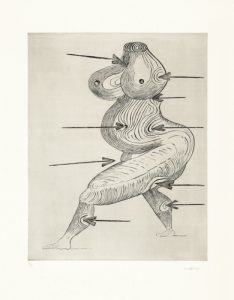
…Sexual violence laid New York and all of its dynamics of flesh bare to me. I became extremely, exquisitely aware of body language. I could feel the snag of passing eyes and gauge their intentions. I felt (feel) like Louise Bourgeois’ “Sainte Sebastienne”–amorphous, read-as-female form in motion, blurring by on curved legs, the distorted swirls of flesh translating to my imagination some sort of traction, as though the figure is moving through honey. Arrows pierce Her(?) in slightly non-parallel arrangements, pinning and incising to various depths belly, heart, thigh, calf, breast, pelvis. The eyes, the voices, sometimes the touches; those agents that break through my dream of the city and make it “real,” that remind me of what I already know and have learned to feel, which do not create new wounds but simply coax old ones through their continued existence: these are the arrows…
January 2018 #MeToo: A Conversation We Must Not Stop Having by Elena Gagovska
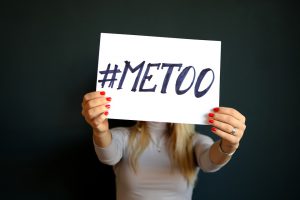
…I didn’t write #MeToo when the campaign took off because I didn’t want to scare my parents with the reality of their daughter having experienced sexual harassment. I should have written it. I definitely should have. I think a part of me didn’t write it because it’s not fun to talk about the times when I’ve felt violated. But it is important to talk about them. So, yes, sadly, me too. And here are some of the times it’s happened…
June 2018 I AM – a poem by Hana Khalaf

I am my umbilical cord
My mother’s sleepless nights
My father’s long drives
I am the scent in my mother’s wardrobe
The high heels I never fit
I am the ingrained institutionalized religion
Founded on fear.
I am the shame and the guilt
The vagina
I am the black eyeliner I draw around my eyes
The chopped hair and grunge outfits
Of every 13 year old …
June 2018 Collage, Quilting, and Feminism: A Conversation with Faith Ringgold by Daniella Brito
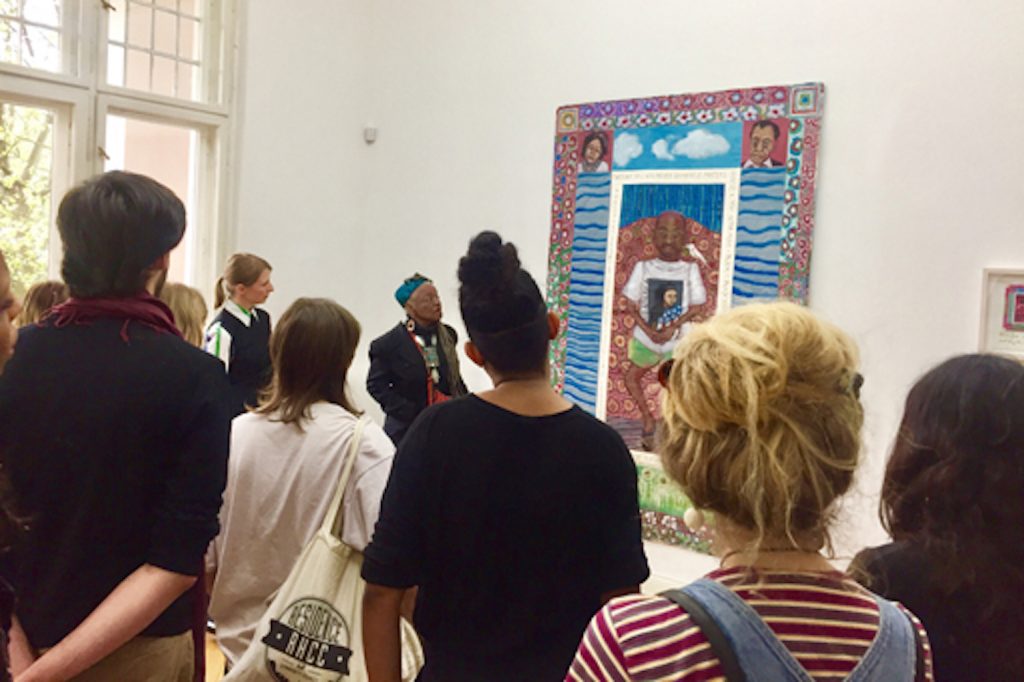
…Ringgold’s expressionist, narrative storyquilts reflect a long history of female collage work. Within her essay “Femmage,” artist and feminist art pioneer Miriam Schapiro discusses the importance of collage as a feminist artistic practice, suggesting that the aesthetic components of collage, such as assemblage, extraction, fragmentation, and use of text, reflect a strong “women’s culture” born out of a history of female domestic and nurturing responsibilities. She interprets this to be a history of “craft-making,” emblematic of a collective female creative consciousness [*1]. However, in making these claims, Schapiro essentializes the female experience and overlooks the intersectional approach to identity that would consider race, gender, age, and access as factors that affect such a consciousness. Ringgold’s collage work must not be simplified to an assemblage of a fragmented, universal female experience…

